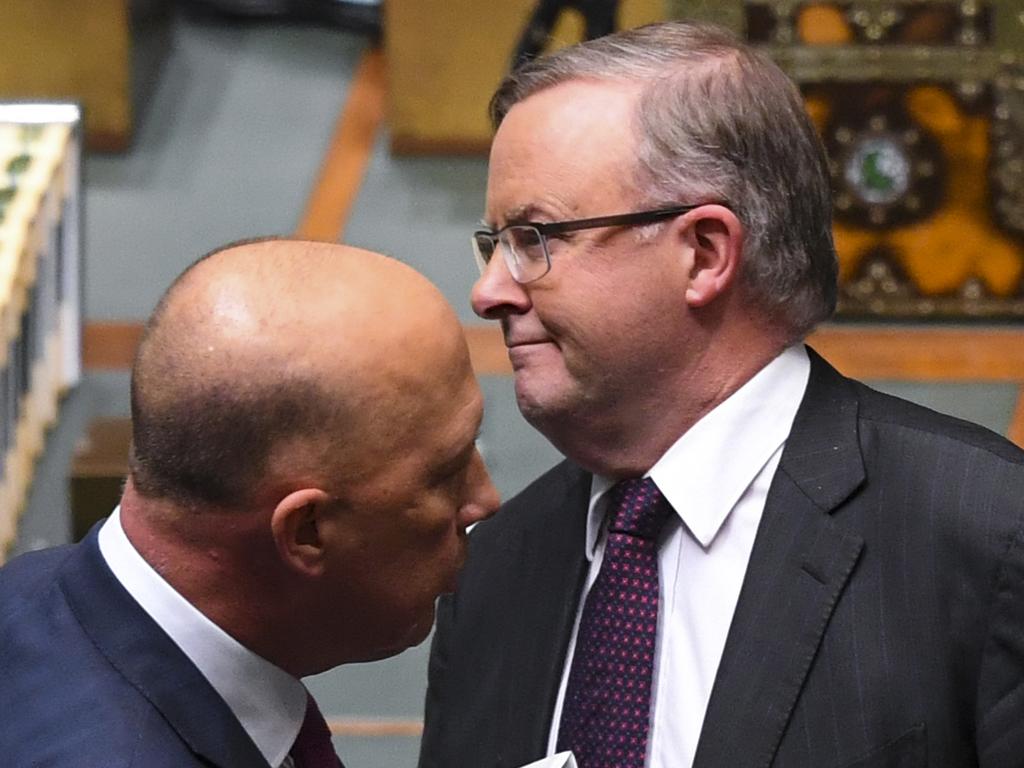Opinion: Unbridled immigration will be Australia’s biggest challenge
Clogged roads, ramped hospitals and crowded shopping centres are testament to our failure to address what will soon be Australia’s No.1 issue, writes Paul Williams.
Opinion
Don't miss out on the headlines from Opinion. Followed categories will be added to My News.
We don’t need statisticians to tell us Australia has a population problem.
Just drive across any major city where clogged roads, ramped hospitals and crowded shopping centres are testament to successive governments’ failures to address what will soon be Australia’s No.1 issue.
The figures are mind-blowing. After years of an already-generous immigration intake of around 190,000 per annum, the current federal government permitted 923,000 new migrants to call Australia home over the past two years, with 550,000 last year alone. That’s a 3 per cent population increase when 2 per cent is a global red flag.
Worryingly, Brisbane’s population grew by a staggering 3.1 per cent last year. Can’t find an affordable home to buy or rent? Can’t find a parking space? Longer commutes to and from work? Now you know why.
After defeating last year’s Voice to Parliament referendum, federal Opposition Leader Peter Dutton has struggled to best a surprisingly resilient Albo. Indeed, never in two years has the Coalition overtaken Labor in the after-preference vote. Calls for a Woolies boycott and a demand for nuclear energy have simply missed their mark.
But Dutton has stumbled upon an issue that could potentially kickstart his 2025 campaign: the reduction in our standard of living wrought by an unchecked immigration policy. In last week’s budget reply speech, Dutton warned Australia’s national housing crisis could not be solved until immigration was reduced. But I argue his target of 140,000 each year for the first two years, then a return to 160,000 annually, is still too high.
At around 87 per cent, Australia already has one of highest rates of urbanisation in the world. We are also the driest inhabited continent, with food and water security inevitably becoming an issue as arable farm land and clean waterways are lost to land degradation and housing development. In recent decades we’ve also extinguished numerous unique plant and animal species in a race to develop city fringes.
It’s a global disgrace that Australia has the fifth-highest rate of land clearing in the world, with over 400,000 hectares lost to development in 2023 alone. And can we really claim moral superiority when, in 2022, Australia pumped out 460 million tonnes of carbon dioxide – a figure likely to grow as millions more call Brisbane, Sydney and Melbourne home?

Australia simply cannot house, feed and employ the 45 million expected Australians in 2070, especially given that 3.3 million Australians (including one on six children) already live in poverty today.
Of course, population-cappers have their opponents. Dutton has been warned his immigration caps will cost the federal budget $34 billion over coming decades. But at what cost an unchecked immigration program? Do we really want coming generations – perpetual renters living cheek-by-jowl in expensive, polluted metropolises – to be worse off than their parents? Not everything of value can be measured in dollars.
Likewise, the business community – a natural Coalition ally – has rebuked Dutton. Of course it would. Business loves a “big Australia”. Not only do more people create more demand for goods and services (and therefore more profit), but when the number of jobseekers exceeds the number of jobs, wages are kept low because labour is easy to find. But business doesn’t appear to understand that population booms also push up rental, energy, water and insurance costs – including for business owners – that are then passed on to consumers.
It’s lazy economics to rely on increased demand (via more mouths to feed and bodies to house) to stimulate economic growth. It’s also dumb economics because it assumes that populations can and must grow forever. And that’s simply impossible.
So, what’s the alternative? How do we enrich the nation and afford pensions for an ageing society without exploding migration numbers? We look to Sweden and Japan where small (or even negative) population growth still produces high standards of living. The secret? More government intervention in managing economic investment, a highly educated workforce with a robust work ethic, and high-value export industries – born from technology managed by that educated workforce – producing greater returns than agriculture and mining alone.
Dutton’s critics say the Coalition is pitching populism to attract blue-collar voters on the cities’ fringes. That may be so. But, anecdotally, population control is something most Australians genuinely worry about. Even before the pandemic, a 2019 Lowy poll found 71 per cent Australians thought our cities were too crowded.
If Albanese wants to ensure a return to office, he’s be wise to adopt vastly reduced immigration targets as a commitment to a liveable Australian future.
Dr Paul Williams is an associate professor at Griffith University
More Coverage
Originally published as Opinion: Unbridled immigration will be Australia’s biggest challenge








